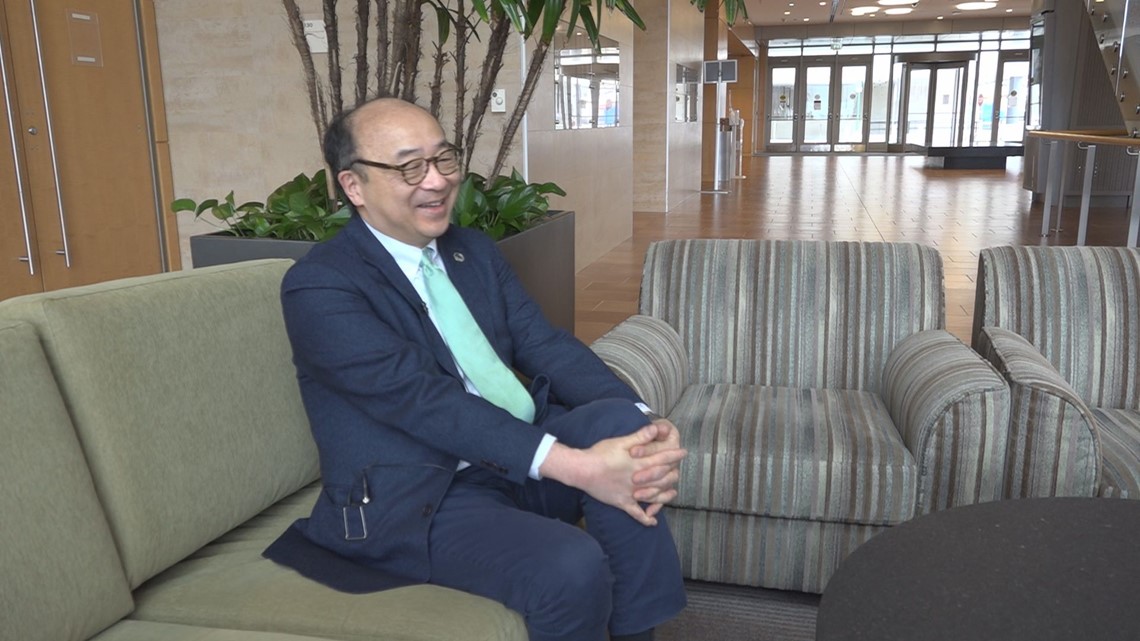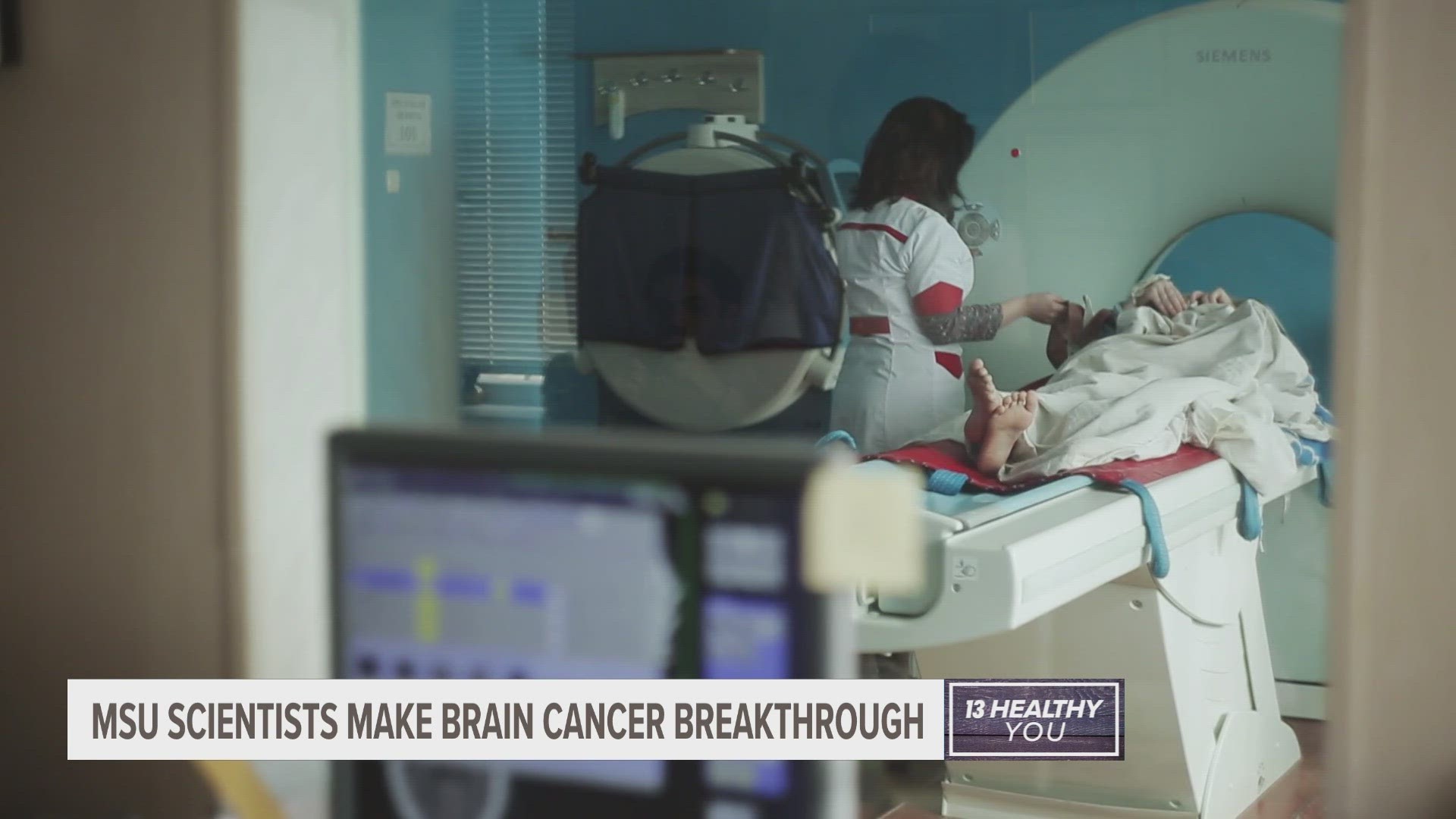GRAND RAPIDS, Michigan — A team of scientists at Michigan State University have made a potentially huge discovery for fighting brain cancer.
Charles Hong, the chair of medicine at MSU College of Human Medicine, said his team discovered a drug-like compound to kill glioblastoma cells while not harming normal brain cells. Glioblastoma is the most common form of brain cancer. There is no current cure.
"It's been known that brain cancer tumor itself is very acidic, and that brain cancers are very difficult to treat," said Hong. "First of all, there's a high degree of resistance, and part of the reason why brain cancers are incurable, is that they keep coming back."
According to the National Brain Tumor Society, 18,990 Americans will die from a malignant brain tumor a year. Hong said brain cancer can be "pretty much a death sentence with 100% mortality within two years."
"We discovered a really promising mechanism by which we could pull the rug underneath from the cancer cells," said Hong.


This compound, called Ogremorphin (OGM), helps fight through the acidic nature of brain cancer cells. According to MSU, OGM disrupts a signaling pathway for cancer cells to survive and grow.
"Moreover, just as we predicted, they sensitized cancer cells to traditional chemotherapy and radiation therapy," said Hong.
The discovery is in a very early stage. Hong said it could still be a few years before they do the first clinical trials. However, he called the discovery itself one of the most exciting moments of his career.
"For patients with brain cancer today, their life expectancy is too short. I don't think it's going to help those people," said Hong. "But it will help people who will get brain cancers or other types of cancers in the future."
Hong led the study with colleagues Charles WIlliams and Leif Neitzel. researchers at University of Maryland School of Medicine and John Hopkins University School of Medicine also collaborated.
"My inbox is full of people telling me this news has given them hope, said Hong. "This is very promising."
RELATED VIDEO: At the Capitol: Hearing on repealing surrogate contract ban
►Make it easy to keep up to date with more stories like this. Download the 13 ON YOUR SIDE app now.
Have a news tip? Email news@13onyourside.com, visit our Facebook page or Twitter. Subscribe to our YouTube channel.

